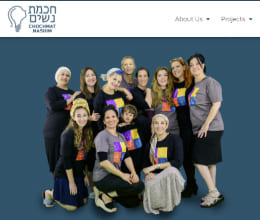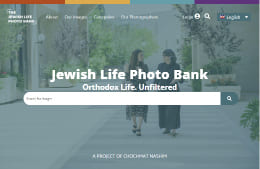
Don’t hate me. I got my first vaccine shot a few weeks ago and I’m scheduled for the second dose next week. I’m not near to 65, the age Israelis are eligible for the shot, nor am I a healthcare worker like my husband, nor am I a teacher. I am just one of the lucky ones who showed up at the end of the week at our health clinic where they were giving shots that would otherwise go to waste (once defrosted they must be used in a few hours).
I’m writing this during Israel lockdown three stage two, which has us restricted to 1,000 meters from home. Restaurants are closed — you can order in, malls are closed, and so are schools and national parks.
The headlines today are: “Record high of nearly 10,000 daily cases as total infections surge past 500,000” and “1,854,055 Israelis vaccinated.”
I’ve said before that Israel is a place of contradictions and ironies. From the contrast of the harsh, tough exterior of Israelis with their caring, sweet insides, to the balagan (chaotic) way we deal with daily life compared to the highly efficient way we respond to threat.
Israel’s procurement of the vaccine is no exception and as you’re surely aware, the country is way ahead of any other country in percentage of population vaccinated. On Monday, Israel stood at 21.38 per cent compared to the United Arab Emirates 11.8 per cent, Bahrain’s 5.44 per cent , and the UK’s 3.94 per cent.
According to The Times of Israel, we are on track for 5.2 million Israelis to be vaccinated by the end of March. The health ministry plan will see those as young as 40 beginning to vaccinate in February. In March, the remaining population above the age of 16 will be allowed to vaccinate.
The government is incentivising people to vaccinate by giving a “green certificate” to those who’ve had both shots. The certificate will exempt civilians from having to quarantine, even after coming in contact with a coronavirus carrier or after returning from a “red country” where virus cases are high.
I feel terrible knowing that I and even some of my children will be vaccinated before older family members in the US. It’s not right, and yet, I cannot transfer my vaccine to them (though I wish I could). People are amazed at Israel’s vaccine campaign — and it is amazing — but it isn’t a miracle.
Tomer Berkovitz, partner and CFO of aMoon, a global healthtech and life sciences investment fund based in Israel says that the country is uniquely positioned to roll out an efficient and speedy vaccination campaign for several reasons. First, our health system is streamlined and unique in that it is public yet competitive. Four HMOs compete and become more efficient, something that we don’t see that in other countries. It is also fully digitised. Ninety-eight per cent of the public has digital medical records and much of the system works digitally, meaning it’s not dependent on human interaction, making a large and complex operation much more manageable.
Furthermore he adds that we have a relatively small and contained population allowing us to reach a large population in a short amount of time. With the depth and breath of medical data available, the hope is that while Israel benefits from early access to vaccines, the global medical community will benefit from early clinical insights.
Whatever the reason for our success in procuring vaccines, and it may be a mix of things, Israelis for the most part have responded well, lining up — in a country where the word “queue” has no meaning, waiting patiently, and getting their vaccine.
And yet, at the same time, our daily numbers of infections are higher than ever. I personally know more people who have been sick in the past weeks than I have in the past months. Two people in their 40s have died and so many are in bidudor quarantine after being exposed to someone positive.
We need to move ahead with the vaccines efficiently, yet we still must remain vigilant and not believe we are immune before we actually are. (Numerous people have become sick after their first dose.)
Don’t hate us for being vaccinated, but do learn from us and be wary of “vaccine euphoria”. Stay safe and be smart and cautious until a week after your second shot. Good health to you all!
Originally published on The Jewish Chronicle


